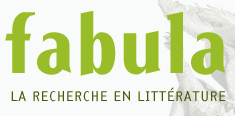Edge in the News: 2018

What is our concern?...This is the question that John Brockman has laid down to dozens of the most influential experts in the world on his Edge.org site (according to The Guardian, "the smartest web site in the world"). He asked them to confess what they were most concerned about, and to show them why the topics should be addressed....
Individual responses complement each other and consist of a multi-layered and ambiguous image of the contemporary world. Last but not least, the published texts, some of which have been printed in advance by the Respekt weekly, together, create a fascinating insight into what the leading scholars and thinkers are concerned about, what issues they are worried about or who, on the other hand, have ceased to worry.

Everything suggests that the new millennium has buried once and for all this paradigm of the two cultures that gave rise to so much debate throughout the twentieth century, and this in the name of a new humanism, even a return to question of the very principles of humanism. Many thinkers, including Francisco Fernández Buey (Para la tercera cultura, 2013) agree to observe in this reconfiguration of the epistemic order the advent of a third culture, an expression made famous by the literary agent John Brockman based on the postulates of CP Snow and which shows a reinvestment of the notion of reality, as well as the means implemented to apprehend it.
. . . The conference, The isomorphism of knowledge: projections of science in literature (twentieth-twenty-first centuries), proposes an interdisciplinary theoretical approach placing at the forefront the recent contributions of epistemocritique and the cognitive theory of figurative language and discourse in the perspective to establish, in a Hispanic and international framework, a dialogue between these two theoretical currents.

Once a year, John Brockman asks a question from leading scientists in a wide range of disciplines, whose multifaceted answers are intended to tell something about the current state of knowledge. "What do you think is the most interesting (scientific) news of our time, what is the significance of this news?" was last year's survey. A book that not only spreads future optimism.

Initiator of the "Third Culture"

Mastermind who coined the term: John Brockman
Photo: Robert Schlesinger
On his homepage, US networker John Brockman lets the brightest minds of today think about the world of tomorrow.
Brockman runs side by side the site edge.org, and that is something like a wormhole into the future. Brockman acts there as curator of the future, as a correspondent of the morning. The man, who imagines himself in a think-tank with Goethe and Alan Turing, is modest enough, despite all certainty, not to report on what is coming. He prefers to ask questions, one each year, and he lets the brightest spirits in the world answer. . . .
In 1973 he founded his agency and mediated his friends as authors to publishers. The friends became stars, Brockman an impresario. Legendary are his annual meetings on his farm in Connecticut. On a weekend, the IQ elite comes to him and provides answers to these questions: What is the human? What is the brain? What is the free will? What is intelligence? Questions are the most important thing, says Brockman, they form the pillars of his thought-building, his empire. Questions are inherently transcendent, they want answers, they want future. And that is exactly what Brockmann is all about. . .
[Continue to English translation | Continue to original German]

The Edge of Science
In the podcast, I reference an important article [Steven Pinker] wrote titled "A Biological Understanding of Human Nature" from a collection of great essays by over 20 thinkers including Jared Diamond and Ray Kurzweil. This collection is found in a book by John Brockman called The New Humanists: Science at the Edge. Brockman, author and founder of the intellectual forum Edge.org, created many of the pieces in the book as narratives based on his conversations with these intellectuals and scientific minds....
In his contribution, Pinker addresses the biases and blind spots people have when it comes to discussing the roots of our behavior. We have much to learn from Steven Pinker and if you've never read him nor heard him speak, I highly recommend doing so....

John Brockman, curator of the online salon edge.org for current debates on research, has asked 175 renowned experts from, among others, AI research, psychology and brain research: "What should we think of artificial intelligence?" (S. Fischer, 2017). The short essays give a good overview of the current debate and present equally pessimistic and optimistic assessments.

Occupying different buildings on many campuses, it’s been said that the humanities and the sciences are two cultures realised in different worlds. Their divorce is pinpointed to an 1817 dinner party when literati dined with natural philosophers and the consumptive 20-year-old romantic poet John Keats asserted that Isaac Newton had plucked the rainbow’s romantic sublimity and reduced it to science’s mere order of prismatic colours.
However, in the past 20 years a thawing in the two-cultures cold war began with John Brockman’s call for scientists to create a third culture, one that engages popular audiences in scientific research using the elan associated with literary writers. Then Richard Dawkins ventured that a deity-less science has its own romantic sublimity, and the romantic biographer Richard Holmes designated a period (between the voyages of Captain Cook’s Endeavour and Charles Darwin’s Beagle) as that of ‘‘romantic science’’. . . .

It is impossible to come away from reading This Idea Is Brilliant without a greater respect for the near incomprehensible vastness of the field of scientific enquiry and a humbling realisation at the depth of ignorance the reader might have towards so many subjects. . . .
This book is a veritable treasure trove of thought, a sort of modern vade mecum, guaranteed to broaden the reader’s horizons.


The Selfish Gene; The Illusion of Self; The Glass Cage. If you have ever read a book by Richard Dawkins, Sam Harris, or Nicholas Carr —among a host of others — you have been in contact, most likely unknowingly, with John Brockman.
For Hollywood, there is the parlour game “Six Degrees of Kevin Bacon”: just about every actor or actress is within six connections, normally fewer, of Bacon himself. Emma Watson, for instance, has a Bacon Number of two: she has acted alongside John Cleese, who has in turn acted alongside Bacon. If you were to transpose that game to the world of scientific publishing, you might choose to search out “Brockman Numbers”. The only difficulty would be that Brockman is connected to everybody. I mentioned Brockman to an acquaintance at Oxford University Press, asking their opinion of him. In response I got pursed lips and the comment, “Brockman? He’s a big fish.”
...It is hard to think of anybody else with this clout; Jeff Bezos, perhaps, or Bill Gates, but it is a small and rarefied group. There are few fish bigger.

Robots are not afraid that some patient will file their claim, do not have to pay student loans from medical studies, do not accumulate savings in the event of a trial. Maybe that's what they need to entrust to our health?
Everything you would like to know about artificial intelligence, but you are afraid to ask. The book What To Think About Machines That Think, the excerpts of which we present, are 186 short essays by eminent contemporary representatives of people of science, culture and social life. They make up a wide overview of artificial intelligence.
John Brockman, a New York publisher, editor, founder of the Edge.org website and think tank, has been asking the most interesting minds in the world of science and art for more than 20 years, asking for innovative, original answers.

Digital Humanities can be defined as the area of knowledge that investigates processes and interactions with digital technologies, applied to projects for the accessibility and socialization of knowledge, interdisciplinary, intercultural and collaborative creation, from critical thinking and the transfer of knowledge to digital media for human welfare.
The digital humanities are a space for interdisciplinary dialogue, seeking to close the gap between art and science that has traditionally generated many frictions, as was made clear by the British physicist and novelist CP Snow in his 1959 conference entitled The Two Cultures. Like Snow, other authors such as John Brockman, Steven Pinker, Richard Dawkins or Lynn Margulis have ventured into what is now known as the Third Culture, which integrates the two universes of art and science.

LITERARY agent and provocateur John Brockman has turned popular science into a sort of modern shamanism, packaged non-fiction into gobbets of smart thinking, made stars of unlikely writers and continues to direct, deepen and contribute to some of the most hotly contested conversations in civic life.
This Idea Is Brilliant is the latest of Brockman’s annual anthologies drawn from edge.org, his website and shop window. It is one of the stronger books in the series. It is also one of the more troubling, addressing, informing and entertaining a public that has recently become extraordinarily confused about truth and falsehood, fact and knowledge.
Edge.org’s purpose has always been to collide scientists, business people and public intellectuals in fruitful ways. This year, the mix in the anthology leans towards the cognitive sciences, philosophy and the “freakonomic” end of the non-fiction bookshelf. It is a good time to return to basics: to ask how we know what we know, what role rationality plays in knowing, what tech does to help and hinder that knowing, and, frankly, whether in our hunger to democratise knowledge we have built a primrose-lined digital path straight to post-truth perdition. . . .

John Brockman has run out of questions. Brockman, a literary agent, runs the science and philosophy site Edge.org. Every year for 20 years, he has asked leading thinkers to answer a particular question, such as: “What questions have disappeared?” or: “What do you believe is true even though you cannot prove it?” This year, though, Brockman announced that he has no more questions left. So he asked his final question: “What is the last question?”
“Judge a man by his questions rather than by his answers,” Voltaire insisted. Questions help us define what we don’t know and force us or others to justify what we think we do know.
Asking questions is relatively easy. Asking good questions is surprisingly difficult. A bad question searches for an answer that confirms what we already know. A good question helps to reset our intellectual horizons. It has an answer that we can reach, yet unsettles what we already know. ...
The questions of how science and technology are transforming life and society are among the greatest intellectual challenges that surprisingly few of today's intellectuals take on. One of the first to do so was FAZ editor Frank Schirrmacher, who died in 2014. So it was not only an gesture of respect, but also an attempt at a programmatic continuation, when the publisher of the weekly Freitag, Jakob Augstein, dedicated a symposium on digital debate to Frank Schirrmacher. . . .
If you want to get an idea of where the future debates are headed, we recommend the internet forum edge.org, directed by the science impresario John Brockman, who had always been an important source for Schirrmacher. For the last twenty years, Brockman has posed an annual question to his network of visionaries, artists, and Nobel laureates. This year, he ended the project by asking everyone to ask one last question.
When the biologist David Haig asks: "What will be the use of 99% humanity for the 1%?", he still poses a question aimed at current digital changes of in society. But if the anthropologist Dorsa Amir asks “Are the simplest bits of information in the brain stored at the level of the neuron?” or the roboticist Rodney Brooks asks, “Can consciousness exist in an entity without a self-contained physical body?”, we realize that science is thinking a lot more about the subject of artificial intelligence. That's why the result is one of the most exciting reading streams ever. Which brings us full circle back to Schirrmacher.

John Brockman has run out of questions, and it’s a shame. For 20 years, as a sort of homage to his late friend, the conceptual artist James Lee Byars, who in 1968 started “The World Question Center,” Brockman has been posing an “Annual Question” to some of the sharpest minds in the world, many of them scientists. Reviewing what might be a representative sample—“What is the most important invention in the past 2,000 years?”, “What do you believe is true even though you cannot prove it?”, and “What scientific idea is ready for retirement?”—it’s clear what Brockman wanted from his responders: to be intellectually daring, vulnerable, and contentious. Which is fitting, given the motto of Brockman’s website, Edge.org, to which the responses are posted: “To arrive at the edge of the world’s knowledge…”

It is a question to inspire the individual – to quote Kant one last time – with "admiration and awe." The last question is always a question about last things. These last – and first – things are the true protagonists of the following pages. They will pursue you into your dreams and nightmares. Hopefully.
Since 1998...the editor John Brockman has asked these questions on his Edge page ( www.edge.org ) to a hundred long intellectuals...
Brockman...says he has run out of questions and this year he has launched the last one. The question is, obviously: What is the last question? A chrysanthemum is the flower that Katinka Matson has chosen for her ritual illustration. There are many answers to look for. This is from Ryan Mckay , a psychologist at the University of London: "Will we be one of the last generations to die?" Of Robert Sapolsky, neuroscientist at Stanford: "Given the nature of life, the purposeless indifference of the universe and our absolute lack of free will, how is it possible that most people are not clinically depressed?" But the best last question, of a Leibnizian nature, is that of the MIT physicist Frank Wilczek. Given its monumental size it is understandable that answering it can never be among the obligations that a newspaper has contracted with the news.
Why?



